#mythology research
Explore tagged Tumblr posts
Text
The Four Symbols
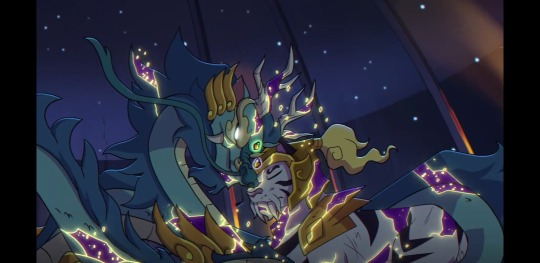
"According to the archaeological evidence, the concept of the Four Symbols may have existed as early as China’s Neolithic period (some 6,000 years ago). This is based on some clam shells and bones forming the images of the Azure Dragon and the White Tiger that were found in a tomb in Henan." "I Ching (易經), a Chinese divination text also known as the Book of Changes, traces the roots of the Four Symbols back to the beginnings of the world. It alleges that they were bred from the famous ring of yin-yang (陰陽), which instils order upon the chaotic spirit of Taiji (太極)."
Four Guardians, Four Gods, Four Auspicious Beast
Each corresponds to a quadrant in the sky, with each quadrant containing seven seishuku, or star constellations (also called the 28 lunar mansions or lodges; for charts, see this outside site). Each of the four groups of seven is associated with one of the four celestial creatures. There was a fifth direction -- the center, representing China itself -- which carried its own seishuku.
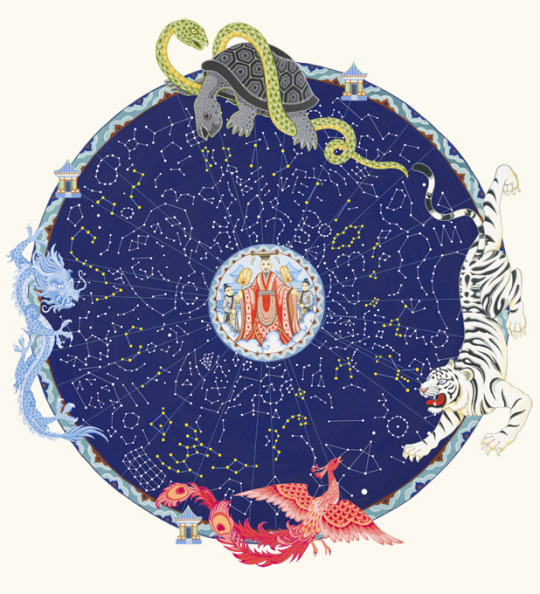
The four Symbols hold significant symbolic meaning in cosmology and culture. They represent harmony and balance od the universe. The represent the harmony and balance of the universe. Each symbol governing a specific direct , season and set of elements. The symbols are associated with the five elements theory, which is crucial in traditional medicine , Feng Shui, and astrology. The also represent the cyclical nature of time, as they are closely tied to the Chines zodiac and the twelve Earthy branches.
The Four symbols paly a significant role in Shines astrology particularly in the Chinese zodiac, each symbol is associated with the specific year within the 12-year zodiac cycle, along with the five elements (wood, fire, earth, metal, and water) The combination of the symbol and the element determines the characteristics and destiny of individuals born in the particular year. The four symbol also influence their astrological systems, such as the Eight Characters (BaZi) and the Four Pillars of Destiny.
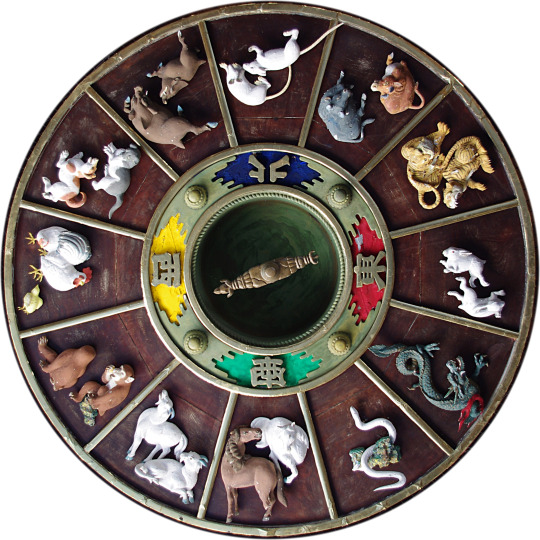
I thought I compare the LMK versions of them to the real mythology.
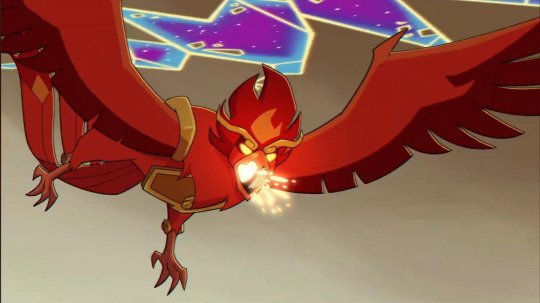
Vermilion Bird: Symbol of the South
Vermilion Bird aka Phoenix or Zhuniao, is the symbol of the southern direction. It is associated with the season of summer and represents the element of fire. It is the symbol of rebirth, immortality, and prosperity. It is also often associated with love, beauty, and passion.
Color- Red
Time of Day - Midady
Appearance: said to have chicken’s head, swallow’s chin, snake’s neck, fish’s tail, and five-color feather. ;or A mythical bird with colorful plumage and radiant feathers.
Its seven mansions are the Well, Ghosts, Willow, Star, Extended Net, Wings and Chario
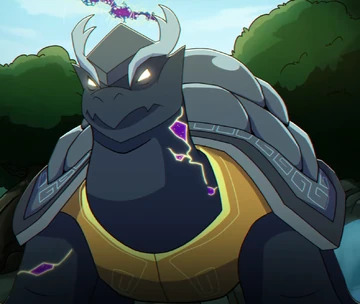
Black Tortoise: The Symbol of the North
The Black Tortoise aka Black Warrior, Xuanwu is the symbol of the northern direction. Associated with the season of winter and element of water. Believed to bring protection and longevity. It is also associated with knowledge and wisdom and the control of water.
Color- Black
Time of Day- Midnight
Appearance: A giant tortoise with a snake wrapped around its back
Its seven mansions are the Dipper, Ox, Girl, Emptiness, Rooftop, Encampment and Wall.
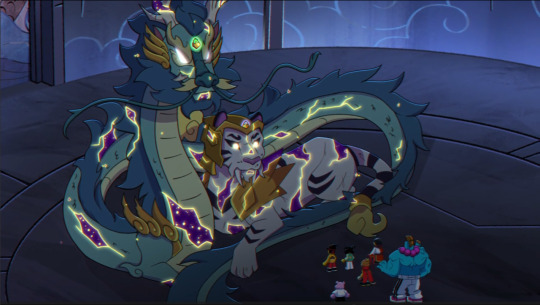
Azure Dragon: Symbol of the East
Azure Dragon aka Blue Dragon or Qinglong, representing the easter direction. The ruler of the sky and is associated with the season of spring, the element of wood and is believed to being harmony and good fortune to those who embrace its energy.
Color: Blue- green
Time of Day - Dawn
Looks – serpent like body, deer-like antlers, fish-like scales and eagle-like claws.
The Azure Dragon as it is said that when the seven mansions in that area (Horn, Neck, Root, Room, Heart, Tail, and Winnowing Basket) are joined up, they form the shape of a dragon
White Tiger: The Symbol of the West
White tiger aka Baihu, is the guardian of the western direction. Associated with the season of autumn and the element of metal. Believed to represent strength, courage, and protection. Its is also associated with the celestial guardian of the west a powerful deity known as Xuanwu
Color- White
Time of Day- Dusk
Appearance: a creature with a tiger's body and lions' mane.
the White Tiger, and its seven mansions are the Legs, Bond, Stomach, Hairy Head, Net, Turtle Beak and Three Stars.
it was held to be the God of War. In this capacity, the White Tiger was seen as a protector and defender, not just from mortal enemies, but also from evil spirits.
A symbol of force and army, and so many things entitled White Tiger in ancient China are related to military affairs. For instance, the white tiger banner in the ancient army and the white tiger image on the Commander’s Tally. In the Han Dynasty, the White Tiger was usually carved on the stone relief of a tomb door, or on the lintel of a tomb passage with the Azure Dragon, to ward off evil spirits.

This puts a lot together and I'm impressed with the details that the show animators and designers put into their character designs.
Also..
Yellow Dragon: Symbol of Central
Yellow Dragon aka Qilin the symbol if the Central direction, and is associated with the season Midsummer and the element earth.
Color: Yellow
--
Comparing them they share the colors with the stones and the yellow dragon (central) seems to correspond with the jade emperor's yellow stone. Once again love the show details.
Nearly forgot about this and left it in the drafts wanted to post this then completely forget them.
24 notes
·
View notes
Text
In light of certain recent topics, I’ve been reminded of the 2017 book ‘Norse Mythology’ by Neil Gaiman. It was a nice telling of the more well-known Norse Myths, but there are LOTS of other options out there for people wanting to learn more about Norse Mythology—you don’t have to support that predator to learn about the gods.
Below is a list of some of the other resources that I’ve used. It’s not exhaustive by any measure—just what I’m familiar with and what comes to mind as I sit here at my desk at work. If anyone else has any additional recommendations, please add them to the list!
Norse Mythology for Smart People - norse-mythology.org

This was where I first started when I wanted to learn about Norse Mythology years ago—I literally just typed “Norse Mythology” into google and clicked the first result like a noob. But this site does a really good job of giving information on a wide range of topics within norse mythology as well as vikings in a general sense—everything from different gods, goddesses, creatures, places, and major stories. It’s a solid encyclopedic source that I would recommend to anyone wanting to get general information on the mythology.
“Norse Mythology: The Unofficial Guide” - https://open.spotify.com/show/7F0tD7bStFIDSVEbsnrxuI?si=8ce8f5ccf3a3417d

If podcasts are your jam, the best by far in my opinion is ‘Norse Mythology: The Unofficial Guide’. At the time of me writing this, there haven’t been any new episodes for 6 months, but there are 37 episodes that are about an hour each & range on a variety of topics from cosmology to specific deities to stories like Ragnarok or specific topics like runes. It does a fantastic job of explaining each topic in a way that is both thorough and accessible & honestly I can’t recommend it enough.
The ‘Northern Myths’ Podcast - https://open.spotify.com/show/7KtSJb5DTLSwmfj1BPYY5v?si=fcd6c297cdc1463d

If you want to go deeper into Old Norse texts like the Eddas or the Havamál, the ‘Northern Myths’ podcast is the place to go for a very deep dive/discussion on these texts. The episodes are long and sometimes get a little dry, but they do read these texts directly and then discuss each passage, so it’s a decent place to go for some deep discussion on some of the pillars of Old Norse texts.
Dr. Jackson Crawford - https://jacksonwcrawford.com/

Most people who get into Norse Mythology/History become familiar with Jackson Crawford pretty quick. He’s an expert specifically in linguistics and the Old Norse language—which includes runes—but he also has extensive knowledge on Old Norse & “Viking” history & culture. He’s previously taught at UCLA, UC Berkeley, and University of Colorado, and now has an extensive Youtube channel. He’s also been a consultant for projects like AC:Valhalla. If you have a question about Old Norse & would like to have a soft-spoken, no-nonsense cowboy in the wilds of Colorado explain it to you, this is your new home.
Again, this is by no means an exhaustive list, but it’s a good start. Please please feel free to reblog with any additional sources you’ve used so we can help new friends learn more!
#norse mythology#norse pantheon#norse history#Norse#vikings#reference#research#sources#jackson crawford#podcast#neil gaiman
879 notes
·
View notes
Text
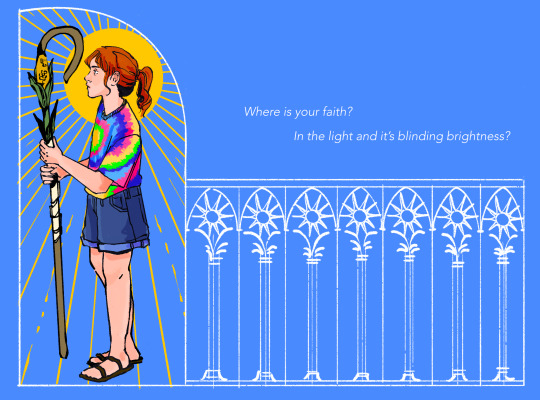


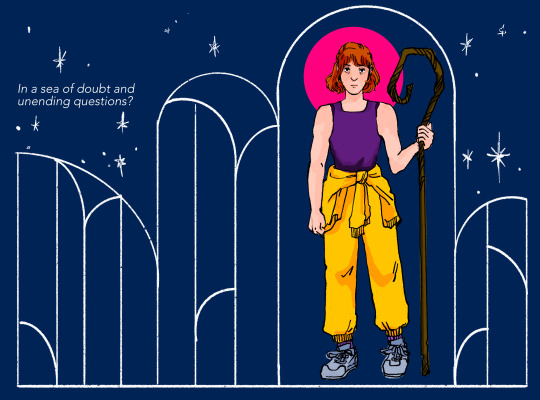
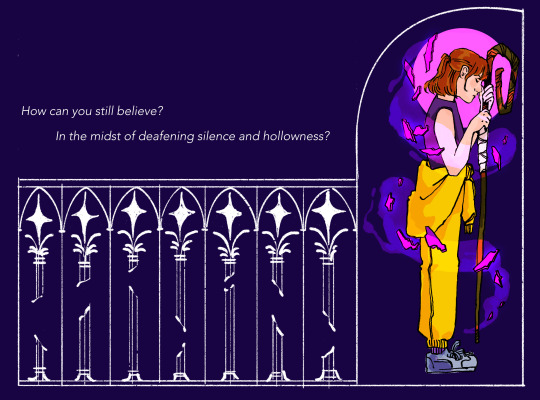
The Devotion of Saint Kristen Applebees
"devoted to [her] mission, is faithful to the call of the gods on [her] life. [She] is willing to sacrifice [her] own interests to those greater interests (...). [She] binds [her] will and [her] heart to that task. This is what it means to be pious."
(bastardization of Alan Jacob, on the origins and early meaning of the term pius)
#no joke i spent hours researching eusebia and pietas and greek mythology for this#and comparing to catholic/ christian theology#as one does#totally normal behaviour#kristen applebees#dimension 20#d20 fantasy high#fantasy high junior year#d20 fanart#dropout#dimension 20 fantasy high#fantasy high fanart#fantasy high#d20 fhjy#ribbittrobbit#rounded out the trilogy my dudes
2K notes
·
View notes
Text
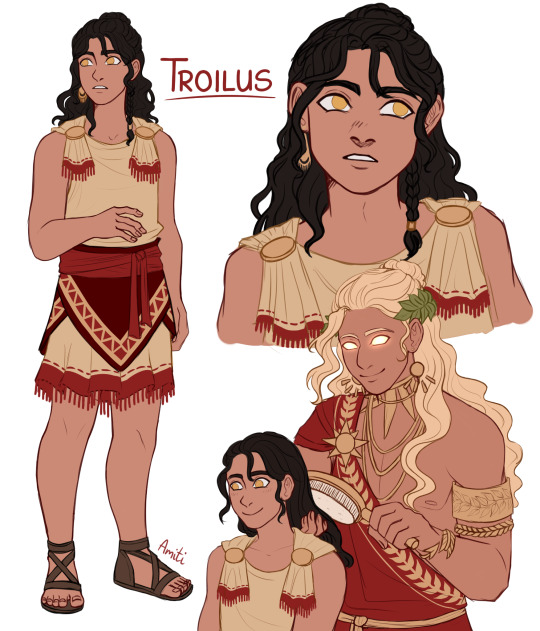
Troilus design! (ft best dad Apollo) He's around 12 years old here.
Researching Troilus' story is not an easy task because unfortunately most of the ancient texts focused on him didn't survive and others only survived in fragments.
This story is brutal even for greek mythology standards so please keep that in mind if you want to continue reading this or do more research on your own.
Something that all of the versions seems to agree on is that he was a Trojan prince, son of queen Hecuba and was killed by Achilles. His father was either Apollo or Priam (Apollo fits more with the context of the story though).
Most of the versions also focus on Troilus' young age and he's often shown to be visibly shorter than Achilles on the vase paintings depicting his death.
The most popular version of the myth (which is also supported by ancient vase paintings) states that Troilus and his sister Polyxena (she's not preset in every version though) went outside of Troy on their horses and while they were at a fountain Achilles ambushed them.
Achilles then chased Troilus who tried to hide inside of Apollo's temple (possibly seeking his father's protection) but Achilles caught up to him and murdered Troilus either inside or in front of the temple and then brutally mutilated his body.
There 2 alternative reasons given for the murder:
1. There was a prophecy which said that if Troilus reached 21 years of age Troy would never fall.
2. Achilles fell in love with Troilus, tried to force himself on him and was enraged when the boy refused his advances. (This version seems to have more surviving evidence)
It could also be that the only reason that Achilles killed Troilus was the fact that he was a Trojan prince and therefore an enemy but this does not seem to fit with the brutality of the act.
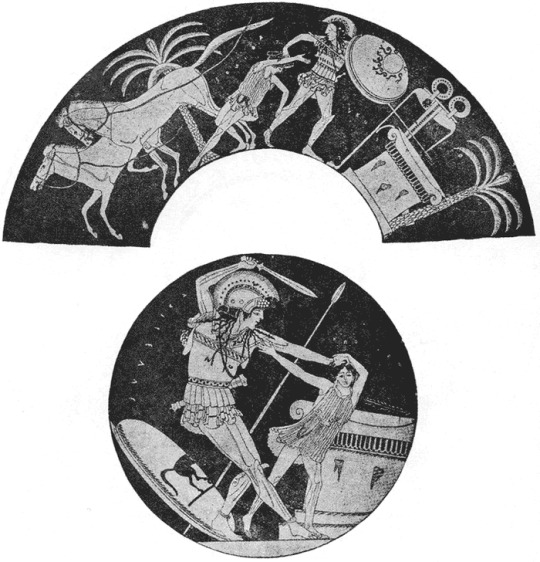

Here are some vase paintings that show Troilus' death at the hands of Achilles
#please correct me if anything in the text is inccorect. Like I said this was hard to research and I don't want to spread any misinformation#Troilus#Apollo#Achilles#trojan war#tagamemnon#greek panteon#greek myths#greek mythology#greek gods#character design#my art#children of apollo
1K notes
·
View notes
Text
Gonna throw out something crazy. See what sticks. Maybe nothing, hopefully something:

In about 3 months, the US is getting a total solar eclipse. I am a Librarian at a Public Library hosting an event.
Now, I KNOW every corner of the globe has mythology on this very cool astrological event. Many with neat monsters/creatures to go with. It is difficult to find images of said creatures. Sometimes even difficult to find the mythology from various parts of the world. Almost impossible to find coloring pages.
I live in a tiny town, and I am doing everything I can to expand the horizons of the kiddos who live here, and they go bananas for a good story out loud, especially if they have something to do with their hands while listening, like pictures to color in.
I call on the artists of the internet. If you know of a myth about Solar Eclipse, please add on to this post. Tell me the basic myth, tell me the country/culture of origin, and please please please, add a cool picture I can turn into a coloring page. Artist names will be left on pictures for admirers to go look them up, and I hope artists see this as a fun challenge.
I don’t even know if Tumbler in English language has that much of an international presence but… 🤷🏻♀️ Here’s hoping.
#total solar eclipse#science#mythology#coloring pages#calling all artists#as a public librarian I don’t have funding to sponsor anything#hope someone thinks this is a fun concept and runs with it#overly sarcastic productions#could use thier research skills right now 😅
2K notes
·
View notes
Text

Greek mythology AU anyone? Alright, I need to get this out of my system, so... I know I don't share much of my personality on this blog and that's on me and my anxiety (I swear y'all are so cool and talented and I love your stuff, I'm just too chickenshit), but there's a little bit of info about me - I love mythology of any kind. I even took a Greek mythology course at uni, as any self-respecting finance graduate does... That being said, I've been playing with this myth-inspired idea for a while.
Have you heard about the story of Ganymede? A Trojan prince whose looks captured the eye of Zeus, who then decided to swoop in, snatch the youth and take him to Mt. Olympus to become his new cup-bearer? You might see it framed as a love story. I'm more inclined to see it as a tragedy - a young person being objectified and preyed upon by someone much older and then subsequently losing their mortal life for it. I would say the myth in itself is actually pretty dark. Ganymede doesn't ask to be taken to Mt. Olympus or to be made immortal. In most versions of the myth that I've read, he's not given any choice at all.
Anyway, I couldn't help but see sort of a parallel with Billy's story, as he's also heavily objectified and his looks seem to play a pivotal role in his arc, from all of the adult attention he gets to Neil's obvious disapproval. It could also be argued that it's this objectification that at least partially leads to his end (because no one can tell me that goddamn Karen was interested in his personality). All in all, another tragedy. You see where I'm going with this?
Anyway, rant over. Sorry for the long post. The painting itself was inspired by Pierre Julien's Dying Gladiator (1778). A closeup of the face is under the cut.

#billy hargrove fanart#billy hargrove#greek mythology au#this is purely self-indulgent#I swear I didn't forget the earring/pendant but all of my measly research says that men in ancient Greece didn't really wear jewelry#tw nudity#hope this isnt too inappropriate for tumblr
332 notes
·
View notes
Text
Damian: So you're going on a mission with Zatanna to the Middle East, right?
Raven: Yes, we leave tomorrow.
Damian: Well, there are some words you should memorize and use them with anyone you meet, okay? Repeat after me "ladaya sadiq."
Raven: La-dayaaa sa-diq?... Ladaya sadiq. What does it mean?
Damian: That's not the important thing, but don't forget to tell everyone there, you understand? All the lives around you could depend on it.
Raven: I understand, thanks for the advice, see you in a few days.
*The next day somewhere in the Middle East during a fight with some ifrites *
Raven, shouting out : LADAYA SADIQ!!!
An Imamah who went to help them : I'm happy for you but I don't think these demons really care if you have a boyfriend or not.
Raven: That's what it means?!
Imamah: *nods *
Raven, visibly upset : Well trust me, when I get my hands on him I'll stop having one.
#Raven: You said that all the lives around me could depend on it!#Damian: Sure. I could kill anyone who even thought of flirting with you.#Damian received the worst scolding of his life#But for him it was worth it#And he will surely do it again#🤣#Ifrites are a class of demons from Middle Eastern mythology#An imamah is a type of Muslim priest/cleric#Don't trust this data too much btw#My research was not that exhaustive#damirae#demonbirds#damian wayne#damianwayne#damian robin#robin damian#robin dc#dc robin#robin#rachel roth#rachelroth#raven roth#ravenroth#raven dc#raven teen titans#raven#damian x rachel#damian x raven#damian and raven
249 notes
·
View notes
Text
watched "the lightning thief" movie for the first time in forever tonight and i think i've finally figured out the main reason the movie rubs me the wrong way.
percabeth.
they completely misunderstood percy and annabeth's relationship.
the movie shows them as an enemies to lovers, with a romantic tension and shoving them towards a romantic plot within literally five seconds of them meeting.
part of it's probably because they picked older actors, but it's just completely wrong.
the wonderful thing about percy and annabeth is their friendship. the friendship that's built from the very start of their meeting, where they dislike each other for all of three seconds before becoming best friends.
a friendship that we don't see any real romance blossoming from until percy's thoughts about annabeth in "sea of monsters" at cc's island, and a friendship we really don't see any real progress in until their kiss in "battle of the labyrinth" at the volcano. (you could definitely argue everything about percy's thoughts in "titan's curse", which is what i view as percy's real turning point towards seeing annabeth in a romantic light)
percabeth doesn't work if they're just automatically pushed into a romantic plot together. it's their friendship that makes us root for them, the way that we know how much they care about each other, but also know that they wouldn't feel so strongly about each other if they didn't start off as such strong friends
anyone who paints percabeth as enemies to lovers and not childhood best friends to lovers i'm sorry but it's just not them
#salty about the movie tonight#and ofc that's not touching on the MULTIPLE mythological innacuracies#like not even book inaccuracies bc that's just everything#but the inaccuracies with the referenced myths themselves#like these people really did zero research#percy jackson and the olympians#percy jackson#annabeth chase#percabeth#the lightning thief
2K notes
·
View notes
Note
sooooo what's this new fic idea you have in mind? 👀
*Twirls hair*
Soooo are you familiar with the myth of Eros and Psyche?
I was playing around with this idea a while ago, but only recently it clicked when I thought...... what if I combined it with Norse mythology instead of Greek
Basically Hiccup is brought by Jack to his house (for.... ReasonsTM) away from Midgard, for his own safety
The most interesting factor to me is that Hiccup can't ever look at Jack, cue fun scenes where Hiccup has banters with an invisible entity
...until it's night time and ooops to get back to a physical form and sleep Jack has to become visible again, and the problem is that for plot reasons Hiccup can't know who he is
So they form a weird dynamic: Hiccup trusts that Jack is protecting him and not lying, Jack trusts Hiccup to not open his eyes when he's visible
And...... you know where this is going if you know the myth hehehe

#asks#yanleafy#hijack#hiccup#my art#out of sight#unfortunately everyone who's interested in norse mythology knows how diffficult it is to do research#so I've been struggling with that#not that I want this to be 100% accurate but having some basic knowledge helps#I'm more used to the giant amount of info we have about greek mythology tbh#you don't grow up with Mithos for Children books and percy jackson and wikipedia rabbit holes and not have a good grasp on the main concepts#thank you for the ask btw i was dying to talk about this to someone <3
264 notes
·
View notes
Text
Okay, so Apollo? We all know him, right? God of the sun, light, poetry, and one too many other fucking things? Including truth, knowledge, logic, and education?
Yeah, how are we all forgetting who the God of fucking Education and Logic is? Please, for the love of everything holy, stop characterizing Apollo as a dumb blond who can’t do shit on his own and whose only traits are pride, vanity, anger issues, and being horny because he is so much more than that and this is really getting out of hand. I’ve read too many damned fics and posts where everyone treats and characterizes Apollo as an immature teenager and I am just so fucking over it. He is such a complex character and we all really need to stop reducing him to a blond dumb-dumb.
#pjo#apollo#greek mythology#greek gods#STOP CHARACTERIZING GODS AS IDIOTS#FUCKING HELL PEOPLE STOP FALLING FOR THIS TRAP#They are all so FUCKING complex just like us humans#So STOP simplifying them to idiots with anger issues#I literally cannot say this enough#STOP MAKING ALL OF THE GODS HAVE PERSONALITIES FLATTER THAN A SINGULAR PIECE OF PAPER!!!!!!!#Just do your fucking research people please
241 notes
·
View notes
Text
Lord Dionysus/Bacchus deep dive

Lord Dionysus is an eccentric god, He is an understanding god, I adore him as a researcher and as someone in the community with schizophrenia and mental illness, he is kind far beyond words, he is not only a wine god but also the god of freedom and ecstasy, may we all respect him and may his devotees and worshipers speak of his good deeds and yell in his honor of goodness.
Signs he's reaching out • smelling wine all of a sudden, craving wine, You feel a twinge of madness, dreams with his attributes with him, seeing references of him everywhere
Herbs •psalakanthos plant, Grapes and their vines, Figs, Bay laurel, Barley, Pine, Pomegranate, Fennel, apples, berries, weed, Silver Fir, Bindweed, poppy, wheat and hops leafs, wildflowers, pine cones, Apple seeds, Blazing star. I think he would like Cinnamon, mint, feverfew (happiness), Pepper, basil, chives, horseradish (courage), orange, lemongrass, marjoram (insight), vanilla, sorrel, cinnamon (love)
Animals• Oxen and wild animals, asses, Leopards, Panther, Cheetah, serpents, rams, dolphins, tigers, lynx, panthers, goats, bats, griffons, bulls , foxes, deers/fawns
Colors •purple, green, gold, Red, Black, White.
Patron of• fruit and intoxitation, Parties, Festivities, Banquets, Drinking, Bacchic Revelry, Madness, Bacchic Frenzy, Insanity, Hallucination, Homosexuality, Effeminacy, Cross-dressing, Forest Wilderness, Wild vegetation, Predatory big cats, Reincarnation, The path to Elysium, Comedy and Tragedy Plays, Playwrites, Actors, bartenders, the arts, non-binary people, divination, witchcraft, oracles
Curses• violence, and sickness, Destructive insanity, madness
Blessings• pleasure and fun, Religious frenzy (in the orgiastic cults), Ecstasy, Afterlife in Elysium (paradise), getting a bigger friend group, charismatic going up, getting a romantic partner.
Diety of• wine-making, orchards, fruit, vegetation, fertility, festivity, insanity, ritual madness, religious ecstasy, theatre, partying, Epiphany, weddings, death, sacrifice, sexuality, dancing, immortality, and reincarnation, uninhibited freedom, as well as the subversion of the powerful, ecstasy, and abandon, swamps and marshes.
Crystals• Amethyst, grape agate, Garnet, Ruby, deep red stones, tiger eye, serpentine, leopard jasper, amber, green opal or jade, carnelian, rose quartz (someone had it on their alter for him, so I added it here.), bloodstone, sugilite, purple fluorite, ametrine lepidolite
Mortal or immortal • immortal
Zodiac • Taruas
Vows/omans• none
Number• 7
Morals• he is morally ambiguous
Married to• Ariadne
Past lovers• Althaia, Ampelos, Aphrodite, Erigone, Kronois, Pallene, Physokoa, Polymnos.
What he favors in devotees• free-spirited, out-of-the-norm, wild lifestyle, gender fluid, transgender, nonbinary people. People are restricted wanting to become free.
Personality• He brings joy, ecstasy, and merriment, but also delivers "brutal and blinding rage”, he's a very chill guy, many say he is sassy. I met him once, and he respects people's boundaries.
Home• Mount Olympus
Equivalents/most resemblance • Osiris, Hades, Sabazios, Yahweh, Bacchus, Liber, Tammuz, Orotalt, Fufluns, Acan, Jesus.
Epithets• Acratophorus, Ἀκρατοφό.ρος “giver of unmixed wine at Phigaleia in arcadia, Acroreites at Sicyon Adoneus a Latinised form of Adonis and is also used as an epithet for Bacchus, AegobolusΑἰγοβόλος "goat-shooter" at Potniae in Boeoria, Aesymnetes Αἰσυμνήτης “ruler" or "lord" at Aroë and Patrae in Achaea, Agrios Ἄγριος "wild", in Macedonia, Androgynos Ἀνδρόγυνος ”Androgynous” specifically in intercourse referring to the god taking both an active male and a passive female role, Anthroporraistes, Ἀνθρωπορραίστης “man-destroyer" a title of Dionysus at Tenedos, Bassareus, Βασσαρεύς "fox-skin", which item was worn by his cultists in their mysteries. Bougenes, Βουγενής or Βοηγενής “borne by a cow", in the Mysteries of Lerna,
Braetes, Βραίτης "related to beer" at Thrace, Briseus Βρῑσεύς "he who prevails" in Smyrna, Bromios Βρόμιος "roaring” and "roar of thunder" refering to the wind amd primarily relating to the central death/resurrection element of his myths and also the god's transformations into lion and bull and of those who drink alcohol and refers to Dionysus' father, Zeus "the thunderer", Choiropsalas��οιροψάλας “pig-plucker" Greek χοῖρος = "pig"(which was used as a slang term for the female genitalia as A reference to Dionysus's role as a fertility deity), Chthonios Χθόνιος “the subterranean”, Cistophorus Κιστοφόρος "basket-bearer and ivy-bearer" because baskets are sacred to the Dionysus,Dimetor Διμήτωρ "twice-born" which Refers to Dionysus's two births, Dendrites Δενδρίτης "he of the trees" as a fertility god, Dithyrambos Διθύραμβος used at his festivals referring to his premature birth, Eleutherios Ἐλευθέριος “the liberator" also a epithet shared with Eros, Endendros ("he in the tree"), Enorches "with balls" with reference to his fertility, or "in the testicles" in reference to Zeus' sewing the baby Dionysus "into his thigh" which means his testicles used in Samos and Lesbos, Eridromos"good-running" in Nonnus' Dionysiaca, Erikryptos Ἐρίκρυπτος "completely hidden" in Macedonia, Euaster Εὐαστήρ from the cry "euae", Euius (Euios), from the cry "euae" in lyric passages, and in Euripides’ play “the bacche, Lacchus Lακχος a possible epithet which is associated with the Elusinian Mysteries, The name "Iacchus" may come from the Ιακχος (Iakchos) whicj is a hymn sung in honor of Dionysus.
Indoletes, Ἰνδολέτης, meaning slayer/killer of Indians Due to his campaign against the Indians, Isodaetes, Ισοδαίτης, meaning "he who distributes equal portions", cult epithet which is also shared with Helios, Kemilius, Κεμήλιος and kemas: "young deer, pricket",
Liknites "he of the winnowing fan", as a fertility god connected with mystery religions ( a winnowing fan was used to separate the chaff from the grain.)
Palazzo Massimo, Rome, Lenaius, Ληναῖος "god of the wine-press", Lyaeus, or Lyaios Λυαῖος, "deliverer” and "loosener") which refers to him as who releases from care and anxiety,
Lysius, Λύσιος "delivering, releasing" At Thebes there was a temple of Dionysus Lysius, MelanaigisΜελάναιγις "of the black goatskin" at the Apaturia festival,
Morychus Μόρυχος “smeared" in Sicily, because his icon was smeared with wine less at the vintage, Mystes Μύστης "of the mysteries" at Tegea in Arcadia, Nysian Nύσιος according to Philostatus he was called like this by the Ancient indians Most probably, because according to legend he founded the city of Nysa, Oeneus, Οἰνεύς "wine-dark" as god of the wine press, Omadios “flesh-eater", Eusebius writes in Preparation for the gospel that Euelpis of Carystus states that in Chios and Tendos they did a human sacrifice to Dionysus Omadios,
Phallen , (Φαλλήν) (probably "related to the phallus” at Lesbos, Phleus "related to the bloοm of a plant", Peudanor Ψευδάνωρ "false man" referring to his feminine qualities in Macedonia,
Pericionius, Περικιόνιος "climbing the column (ivy)" a name of Dionysus at Thebes, Semeleios or Semeleius or Semeleus an obscure epithet meaning 'He of the Earth' and 'son of Semele' Also “Son of Semele, Iakchus, wealth-giver”,
Skyllitas, Σκυλλίτας “related to the vine-branch" at Kos, Sykites, Συκίτης "related to figs" at Laconia,Taurophagus, Ταυροφάγος “bull eating", Tauros Ταῦρος “a bull", Theoinus, Θέοινος wine-god of a festival in Attica, Τhyiοn, Θυίων "from the festival of Dionysus 'Thyia' (Θυῐα) at Elis", Thyllophorus, Θυλλοφόρος "bearing leaves" at Kos, Dionysus and Zeus absorbs the role of Sabazios (a Thracian/Phrygian deity)
Facts• Dionysus was the last god to enter Olympus, When Dionysus had grown up lady Hera made him into a state of madness so he wandered through many countries of the earth, He was a student of the famous centaur Chiron who taught him how to dance, The common names Dennis and Denise are said to be derived from Dionysus. he hated the sight of an owl
Roots• Ancient Greece, Greek mythology, Mount Pramnos on Ikaria
Offerings • Honey, Meat, Alcohol (especially wine), Fruit, Cakes, Poetry, Songs, Spices (ex- cinnamon), Blood or liquids resembling blood, He thinks those "wine mom" signs that you get in cheap gift shops are hilarious, Grape juice, Intoxicants, Grapes, Olive oil, Apples, Figs, Eggs, Goblets, Curved daggers, Bull horns, Snake skin, Leopard or tiger print objects, Purple candles, Theatre masks, Sexual toys, Percussion instruments, Wine bottles, Fake/toy grapes, Leaves or curls from grapevines, Pine needles, Pinecones, Apple seeds, Bindweed, Wildflowers, Toys photos or art of any big cats, snakes, Hymns, Songs you’ve written, Any art that you create, Any stories that you create, Art, pictures of the comedy, Wine corks, Wine labels, Toy or miniature drums, milk, water from the sea (he has a strong connection with the sea), Decorative beads, party beads, flashy jewelry, Wine glasses, Shot glasses, Corkscrews, Sparkling cider, Grape flavored things, Cheese, hallucinogens, Nips (small alcohol bottles), Bottle opener, Beer/soda tabs, Alcohol bottles with cool labels, Costumes, NatureFig/fig newtonsBull imagery, Donkey imagery, Bones, Antlers, Dead/preserved animals, Hiking gear, Seeds, Concert/festival tickets, Locks of hair, Shaven beard hair, Pride swag, ravagant clothes/clothes that make you feel good, soup (you know , you know.)
Devotional • learn about sacred sex, shamanic journeying, responsible entheogen use, and alcohol as a sacrament, read “The Secret History” book, Make a playlist for Him, Dance and sing to your favorite songs or songs you’d think He would like, Throw a feast in His honor, Remembering to take your medication and taking care of your mental health, Support/donate to your local theatre in His name, Be a part of the theatre, Stand up for those that are marginalized, Write stories/plays for Him, Invite Him to watch plays or movies with you (especially comedies or tragedies), Throw parties or attend them, Attend festivals, Attend a wine tasting, Go on wine tours, Attend parades, Masturbate or partake in sexual acts for Him (if you’re comfortable doing so And over 18), Drink alcohol or grape juice, Smoke po, Learn about winemaking, Support local vineyards, Wear wreaths made from ivy, Wear faux leopard or tiger print, Wear the color purple, Pray to Him for things while intoxicated/high, Visit your local winery and participate in a grape-stomp, do some Homebrewing in his honor, Grow a garden in his honor, Make your own ritual tools in his honor, Collect art, do Glamourbombs in his honor, Pretend to be somebody else in his honor, go out to a club in his honor, listen to music in his honor, read in his his mythos, write things for a ritual and write a prayer for him, eat some grapes or have some grape juice or sparkling grape juice (or wine if able and of age), listen to party music, read plays, watch musicals or plays (ex- high school musical, Hamilton), listen to musical soundtracks, learn about the history of theatre, learn about viticulture and vineyards, do things that bring you pleasure, listen to party soundscapes, watch documentaries about any of his sacred animals, Trip intentionally/spiritually, Learn about substance abuse/recovery, Destigamtize drug users, Learn about harm reduction, Make home videos, Write poetry, Act, Dress up, Go to the woods, Dance/sing in the woods, Meditate in the woods, Learn wilderness safety and first aid, Learn what to do when encountering a wild animal, Go off the beaten path, Explore new areas, Pick up litter, Forage, Recycle bottles, Grow fruit, Try new fruits, Have sex (let the partner know beforehand it's in Diyonisus honor, 18+), Masturbate (18+), Have threesomes/swing (ask him before and make sure the other participants know it's in Dionysus's honor, 18+.), Finally, give into that one kink you’ve been ignoring (you know the one, 18+), Learn about consent with partners, Learn how to preserve dead animals, Learn about different life cycles (ex-plants, animals), Learn about immigration in your area, Learn about different cultures, Try foreign foods, Learn a new language, Learn about your ancestry, Help immigrants in your area, Grow your hair out, Keep a Manifest/Keep a manifestation journal, Use Sexual/creative energy to manifest, Shed your old self, Do Self-reflection/self-exploration, Identify areas where you overindulge (ex- food, substances, spending).
Symbols• Grapevine, ivy, phallus, Thyrsus, theatrical masks, Leopard Skin, Panther, Cheetah, the animal called asses, cymbals, swords, or serpents, rams, laurel, asphodel, dolphins, tiger, lynx, panther, horns, goats, his chariot pulled by 2 leopards, masks in general.
Siblings• Ares, Athena, Apollo, Artemis, Aphrodite, Hebe, Hermes, Heracles, Helen of Troy, Hephaestus, Perseus, Minos, the Muses, the Graces.
His friends/gets along with• Maenads and Bacchantes and Satyrs and Sileni and Pan and Priapus
Attendees• Seilenos (God of Drunkenness), Pan (God of Shepherds & Pastures) the Satyroi and Seilenoi (spirits of Fertility & the Wild) The Bakkhantes and Mainades (Nymphe and Women revellers) Komos Satyriskos (cup-bearer)
Appearance in astral or gen• Dionysus often took on a bestial shape and was associated with various animals, often wearing an Ivy wreath, the thyrsus, and the kantharos (a large two-handled goblet) In early Greek art he has represented as a mature male, bearded and robed holding a fennel staff tipped with a pine-cone, but later on he was portrayed as youthful sensuous, naked or semi-naked androgynous youth and effeminate with brown hair and pale features, often holding grapes and drinking wine.
Parentage• Zeus and Semele, some sources also say Zeus and Demeter, some say Zeus and Persephone, but he always sends up with Persephone as a foster mother or as a biological mother, but before his reincarnation, his parents were Ammon and Amalthea.
Pet• leopards
Children • Priapus, Hymen, Thaos, Staphylus, Ononpion, Cumus, Phthonus, the Graces and Deianira, Seilenos, Pan, Satyroi & Seilenoi, Bakkhantes & Mainades, Komodo’s
season and festivles• Diyonosus festivals were bacchanalia, Dionysia, Anthesteria, Dionysian, Lenaia, Panathenaia, his season was spring and March and April
Day• 11th to the 13th of the month of Anthesterion, around the time of the January or February full moon.
Sacred places• Boitia in Greece, naxos Greek, island Edina in western Thrake, his holiest shrine was Mt kithairon (Nysa) in Boiotia Greece, he also declared war on India. A sacred place is the theatre.
Status• Greek god in the major theoi, and an agriculture Demi God.
Pet peeves• Uderestemating him, he probably won't like it if you ignore him
Music• Disco, show tunes, psychedelic rock, acid folk, Greek folk music, EDM, classical, new wave, art pop, vaporwave, just anything you can dance and sing to.
Tarot• Temperance, fool card, three of cups, the tower, 9 of cups (based off of how people see him through their tarot cards)
Scents/Inscene • Pine incense, frankensince, patchouli and vanilla, nutmeg, mulled wine, storax, and Benzoin.
Prayers•
Regular prayer
Dionysos, god whose arrival is swift and certain, enduring friend of women and men whose welcome is warm, bringer of light, we see you in shadows. Dionysos, granter of great blessings, your presence is a heady wine. Kind-hearted god, to each you give as is fitting, each vessel you fill only as we can bear, and yet with even a sip, we are drunk upon you, and our faith is affirmed. Awesome god, by our own will we drink deeply, with you we become lost, we wander, we are found.
Litany to Dionysos
Dionysos of the vine, rich-tressed god of wine, potent and lusty, unmixed, undiluted, with full force you come to us, vital and robust, rich and strong and surprisingly sweet. Dionysos, I praise and honor you, I thank you for your blessings. Ivy-bearing Dionysos, god of the green, of the power of root on stone, the force of life that will make its own way in spite of all who labor to hold it back, no will or work can bind your might. I praise and honor you, I thank you for your blessings. Dionysos of the deep earth, of the dark world, of the unknown expanse beneath the black soil, beneath solid stone, of mysteries you know much, of death and of what lies beyond. God of secrets, I praise and honor you, I thank you for your blessings. Dionysos the inspiring, granter of words of prose or poesy, words heard best by the drunken and the mad, words forgotten with the passing of night and delight. Bacchus, granter of rare transport, I praise and honor you, I thank you for your blessings. Dionysos Soter, holder of the hearts of men, you free us from the cares of the world, each brilliant frenzied moment a shining jewel, each glimpse of the sacred more precious than gold. I praise and honor you, I thank you for your blessings. Kindly Dionysos, granter of good to men and women, giver of gifts to all who seek your blessing. Gracious Dionysos, accepter of offerings great and small, friend of mankind, I praise and honor you, I thank you for your blessings.
Regular Prayer to Dionysos
Dionysos, deep-hearted one who knows the souls of men and women, whose hand is ever open, ever within reach. Dionysos, god who runs in the dark, who sees with eyes shut tight, who dances to the heart’s strong beat, ever are you yourself, ever constant, ever changing god of those who are trapped, those who seek your truth and their own, those who seek vision beyond seeing, those who seek wisdom beyond knowledge, those who seek the self, pure and sweet, those who seek clarity beyond definition, who seek to embrace the uncertain, to hold, but loosely, to what is true beyond trust.
Regular prayer to Dionysos
I praise Dionysos, lord of the vine, lord of the far reaches of the mind; in the thick of the woods, along darkened paths, in the shadows of dusk and of dawn, you roam the world, the satyrs and the pretty nymphs dancing in your wake. Son of Zeus and fair-haired Semele, bold-hearted Semele, who dared to look into the face of glory, beautiful Semele who you carried into life again, Semele reborn who men called Thyone; beloved of clever Ariadne, quick-witted one, so dear to your heart, your bright-eyed bride and consort; Dionysos, friend of women, friend of the blissful, wild-eyed maenads, pilgrims and pioneers, those who seek, your cheer and inspiration, those who seek your release, from sorrow and despair, those who are lost in joy, and those who have found themselves in you. Dionysos, god of the darkest dark and the deepest deep, boundless one, endless one, fathomless one, in you we see the edges of ourselves, in you, we find our life’s journey, in you we find our home.
To Dionysos
I call to Dionysos, great god of the vine, son of thundering Zeus and headstrong Semele, loving husband of warm-hearted Ariadne. From the east you came, old before the ancients, throughout the elder world were you beloved; in Naxos and Boitia were you celebrated, in temples and in the savage wilderness, the fleet-footed maenads running in your wake. The sweetest, strongest wine is ever your drink; the mind’s release, the body’s loosening, your gift. O Dionysos; thyrsus-shaker, ivy-crowned god, we see you in the shadows, we see you on the edges, we see you in the haze of ecstasy, where we know the truth of passion, where we find the essence of our being. Bacchus, I call to you!

| Sources & websites in comments. |
I use resources, I do not own the info, and most deep dives have UPG (that I use in my work.) And I only take some information from sources. I am 14, this is my hobby, I am learning but I spent many hours and days on this, and I am always open to criticism. I have been doing worship for 5 years. Please know you can use the info, I do not sue, but I will take action if this work is used without permission and not put as a resource if used in any work. without permisson and not put as a resource if used in any work, for the public.
#the gods#hellenic devotion#hellenic polytheism#doing the research for you#hellenic worship#greek gods#greek mythology#qoutes#ancient greek#dionysus#greek pantheon#hellenic#dionysus deity#hellenism#dionysus worship#dionysus devotee#dionysus god#Dionysus#paganblr#paganism#polytheist#pagan#deity worship#deity work#bacchus#dionysos#the bacchae#Bacchush#hellenic gods#hellenic paganism
841 notes
·
View notes
Text

A poster I did for "Heroic epics of the peoples of Russia" project by Nikolay Rastorguev Foundation and the Moscow's Department of Culture
Rus Byliny (plural) — oral epic poems in Kyivan and Novgorod Rus, counting more than 400 poems and mostly focusing on the semi-historic deeds of bogatyrs ("great warrior"). Despite common traits, they show a variety of themes, structure and dates of origin. The centerpiece is the most famous bogatyr trio — Ilya of Murom, Dobrynya Nikitich and Alyosha Popovitch with their respective antagonists, while the foreground focuses on much more archaic heroes — Svyatogor and Mikula Selyaninovitch. Heroes of that period inhabit almost a mythological world, and often posses chthonic traits themselves. Even by the time of the Boratyr Trio their stories centered on no longer belonging to the "modern" world.
Twitter | VK | INPRNT | Leave a tip
#artists on tumblr#slavic#folklore#kyivan rus#rus#novgorod rus#mythology#inkyami researches#most of those characters are in my slavic deck (I had a VERY one-themed autumn)#some I even posted here
373 notes
·
View notes
Text
List of interesting ressources pertaining to norse paganism, scandinavian folklore and history, and nordic religions in general
These are sources I have personally used in the context of my research, and which I've enjoyed and found useful. Please don’t mind if I missed this or that ressource, as for this post, I focused solely on my own preferences when it comes to research. I may add on to this list via reblog if other interesting sources come to my mind after this has been posted. Good luck on your research! And as always, my question box is open if you have any questions pertaining to my experiences and thoughts on paganism.
Mythology
The Viking Spirit: An Introduction to Norse Mythology and Religion
Dictionnary of Northern Mythology
The Prose and Poetic Eddas (Online)
Grottasöngr: The Song of Grotti (Online)
The Poetic Edda: Stories of the Norse Gods and Heroes
The Wanderer's Hávamál
The Song of Beowulf
Norse Mythology: Myths of the Eddas (Online)
Rauðúlfs Þáttr
The Penguin Book of Norse Myths: Gods of the Vikings (Kevin Crossley-Holland's are my favorite retellings)
Myths of the Norsemen From the Eddas and the Sagas (online) A source that's as old as the world, but still very complete and an interesting read.
The Elder Eddas of Saemung Sigfusson
Pocket Hávamál
Cassell's Dictionary of Norse Myth and Legend (Online)
Cassel's Dictionary of Norse Myth and Legend
Myths of the Pagan North: Gods of the Norsemen
Lore of the Vanir: A Brief Overview of the Vanir Gods
Anglo-Saxon and Norse Poems
Gods of the Ancient Northmen
Gods of the Ancient Northmen (Online)
Norse Mythology - The Gods, Goddesses, and Heroes Handbook: From Vikings to Valkyries, an Epic Who's Who in Old Norse Mythology (A vulgarized and fun read for for newbies!)
Two Icelandic Stories: Hreiðars Þáttr and Orms Þáttr
Two Icelandic Stories: Hreiðars Þáttr and Orms Þáttr (Online)
The Elder Eddas of Saemund Sigfusson; and the Younger Eddas of Snorre Sturleson (Online)
Sagas
Two Sagas of Mythical Heroes: Hervor and Heidrek & Hrólf Kraki and His Champions (compiling the Hervarar saga ok Heiðreks and the Hrólfs saga kraka)
The Saga of the Jómsvíkings
The Saga of King Heidrek the Wise (Online)
The Heimskringla or the Chronicle of the Kings of Norway (Online)
Stories and Ballads of the Far Past OR Stories and Ballads or the Far Past - Translated from the norse (Icelandic and Faroese) with introduction and notes
Stories and Ballads of the Far Past: Icelandic and Faroese
Heimskringla: History of the Kings of Norway
The Saga of the Volsungs: With the Saga of Ragnar Lothbrok
The Saga of the Volsungs (Online. Interesting analysis, but this is another pretty old source.)
The Story of the Volsungs (Online) Morris and Magnusson translation
The Vinland Sagas
Hákon the Good's Saga (Online)
The Saga of Hervör and Heidrek (Online)
The Saga of the Jómsvikings (Online)
History of religious practices
The Viking Way: Magic and Mind in Late Iron Age Scandinavia
Nordic Religions in the Viking Age
Agricola and Germania Tacitus' account of religion in nordic countries
Myths and Symbols in Pagan Europe: Early Scandinavian and Celtic Religions
Tacitus on Germany (Online)
Norse Mythology: A Guide to Gods, Heroes, Rituals, and Beliefs
Seiðr & Shamans: Defining the Myth of Ritual Specialists in pre-Christian Scandinavia (online)
Vǫrðr and Gandr: Helping Spirits in Norse Magic (online)
Scandinavia and the Viking Age
Viking Age Iceland
Landnámabók: Book of the Settlement of Iceland (Online)
The Age of the Vikings
The Vikings (Online. Mind the year of publication, this source is pretty old!)
Gesta Danorum: The Danish History (Books I-IX)
The Sea Wolves: a History of the Vikings
The Viking World
The History of Iceland
Guta Lag: The Law of the Gotlanders (Online)
The Pre-Christian Religions of the North (This is a four-volume series I haven't read yet, but that I wish to acquire soon! It's the next research read I have planned.)
Old Norse Folklore: Tradition, Innovation, and Performance in Medieval Scandinavia
Children of Ash and Elm: A History of the Vikings
The Penguin Historical Atlas of the Vikings by John Haywood
Landnámabók: Viking Settlers and Their Customs in Iceland
Nordic Tales: Folktales from Norway, Sweden, Finland, Iceland and Denmark (For a little literary break from all the serious research! The stories are told in a way that can sometimes get repetitive, but it makes it easier to notice recurring patterns and themes within Scandinavian oral tradition.)
Old Norse-Icelandic Literature: A Short Introduction
Saga Form, Oral Prehistory, and the Icelandic Social Context
An Early Meal: A Viking Age Cookbook and Culinary Oddyssey
Runes & Old Norse language
Uppland region runestones and their translations
Viking Language 1: Learn Old Norse, Runes, and Icelandic Sagas and Viking Language 2: The Old Norse Reader
Five Pieces of Runic Poetry
Corpus poeticum boreale, the poetry of the old Northern tongue from the earliest times to the thirteenth century (online)
Old Norse-Icelandic Literature: A Critical Guide
Eddic to English: A survey of English translations of the Poetic Edda
Catalogue of the Manks Crosses with Runic Inscriptions
Old Norse - Old Icelandic: Concise Introduction to the Language of the Sagas
A Companion to Old Norse-Icelandic Literature and Culture
Five pieces of runic poetry translated from the islandic language: Quotations
Nordic Runes: Understanding, Casting, and Interpreting the Ancient Viking Oracle
YouTube channels
Ocean Keltoi
Arith Härger
Old Halfdan
Jackson Crawford
Wolf the Red
Sigurboði Grétarsson
Grimfrost
(Reminder! The channel "The Wisdom of Odin", aka Jacob Toddson, is a known supporter of pseudo scientific theories and of the AFA, a folkist and white-supremacist organization, and he's been known to hold cult-like, dangerous rituals, as well as to use his UPG as truth and to ask for his followers to provide money for his building some kind of "real life viking hall", as supposedly asked to him by Óðinn himself. A source to avoid. But more on that here.)
Websites
The Troth
Norse Mythology for Smart People
Voluspa.org
Mimisbrunnr: Developments in Ancient Germanic Studies
Icelandic Saga Database
Skaldic Project
Life in Norway This is more of a tourist's ressources, but I find they publish loads of fascinating articles pertaining to Norway's history and its traditions.
Germanic Mythology
Stories for all time: The Icelandic Fornaldarsögur
#ressources#masterpost#heathenry#research#sources#norse paganism#norse gods#spirituality#polytheism#deity work#pagan#paganism#deities#norse polytheism#mythology#eddas#sagas
768 notes
·
View notes
Text
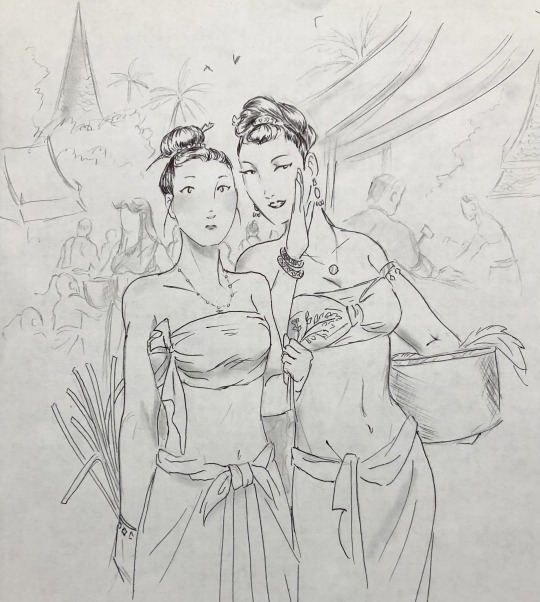
‘Oh! I must tell you, that just after we parted yesterday, I saw a young man looking at you so earnestly - I am sure he is in love with you.' Kattika coloured, and disclaimed again. Isara laughed. ‘It is very true, upon my honour, but I see how it is; you are indifferent to everybody's admiration, except that of one gentleman, who shall be nameless.’
Day 16: Gossip for @janeuary-month with a Thai Northanger Abbey AU
#tried finding Thai variations of their names and came up with catherine/kattika and isabella/isara#janeuary#janeuary 2025#northanger abbey#catherine morland#isabella thorpe#thailand#thai northanger abbey#jane austen#something something#henry is a buddhist nen (young monk who hasn’t been ordained yet so the rules are looser and he can leave anytime)#and cathy (kattika) hears rumors about papa tilney being a suea saming (someone who can turn into a tiger through black magic)#who supposedly killed his wife while he was a tiger (in reality it was probably disease or smth like in the book)#idk I’m sure I could add more if I thought about it/did more research#but my knowledge on the ayutthaya era and thailand in general is spotty#but the ✨aesthetics✨👌😘#+plus the fun mythology/folklore to play around with#jane austen cultural remix
126 notes
·
View notes
Text
Ares: Hey, remember when you got chained up?
Thanatos: Yeah, rough times.
Ares: I'll bet. Remember when I saved you?
Thanatos: Of course, man! Thanks again.
Ares: No problem, but I've got one more question.
Thanatos: Go ahead.
Ares: Remember when I got chained up and trapped in a bronze jar?
Thanatos:...
Ares: For thirteen LONG months.
Thanatos:...
Ares: Nothing but the darkness of my own mind to keep me company.
Thanatos:...
Ares: All for trying to keep my mom and little sister safe.
Thanatos: Well, now I think you just want me to feel bad.
#greek mythology#ancient greek#greek myths#greek gods#greek goddess#ares#ares god of war#ares god#thanatos#god of death#I just remembered this because of some Sisyphus research#where are the buddies when you really need them?#more proof that Ares has a bad rep despite being a pretty decent guy all things considered#just saaaying
111 notes
·
View notes
Text
To anyone who is upset that Jorge included a mention of SA in epic the musical, I have 2 questions.
1. Did you actually read the Odyssey, aka the piece of literature epic the musical is an adaptation of?
2. Have you read any of the greek myths? The challenge with that isn't "find a greek myth that does include SA" and is actually "find a greek myth that doesn't include SA." And believe me, it's pretty impossible.
So before you start screaming about an adaptation of a GREEK MYTH having SA, you should probably do some actual gods be dammed research!
And if you are really uncomfortable with it, just skip the bloody song. It's not that hard.
#greek mythology#epic the ithaca saga#epic the musical#jorge rivera herrans#people are just so annoying#especially the ones who never to their bloody research
79 notes
·
View notes